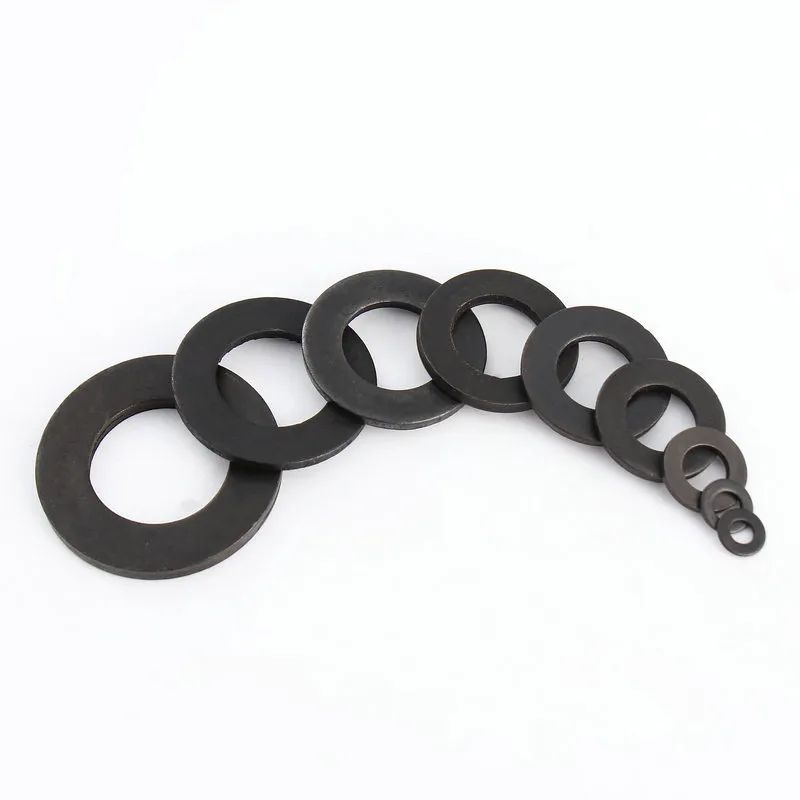

Understanding the Characteristics and Applications of Threaded Fasteners in Engineering
ডিসে. . 16, 2024 17:11 Back to list
Understanding the Characteristics and Applications of Threaded Fasteners in Engineering
Understanding Threaded Bolts Essential Components in Engineering and Construction
Threaded bolts are fundamental components in engineering and construction industries, playing a critical role in fastening materials together securely. Their design, composition, and application have evolved over the years, making them indispensable in a multitude of projects ranging from intricate machinery assembly to large-scale construction. This article delves into the features, types, and applications of threaded bolts, emphasizing their significance and versatility.
What are Threaded Bolts?
Threaded bolts, sometimes referred to simply as bolts, are cylindrical fasteners with helical ridges known as threads. These threads are designed to fit into corresponding nuts or to be screwed into pre-tapped holes in different materials. The main body of the bolt remains smooth, while the threaded section provides the mechanism for securing two or more components together. The strength and reliability of threaded bolts make them crucial in ensuring the structural integrity of numerous applications.
Types of Threaded Bolts
There are various types of threaded bolts, each designed for specific applications and conditions. Here are some of the most common types
- Hex Bolts Featuring a hexagonal head, these bolts are versatile and widely used in various applications. They can be tightened using a wrench and are typically used in mechanical and construction settings.
- Carriage Bolts These bolts have a rounded head and a square neck that prevents them from turning when tightened. Carriage bolts are often used in woodworking, particularly in applications where the bolt needs to be countersunk.
- Lag Bolts These are heavy-duty bolts used primarily in wood construction. They require a pre-drilled hole for installation and are known for their excellent holding power.
- Shoulder Bolts Shoulder bolts have a stepped cylindrical shoulder on which a component can rotate or slide. They are commonly used in applications where movement is required.
threaded bolt

- Flange Bolts These bolts have a built-in washer that provides a larger surface area for load distribution. They are often utilized in structural applications.
Material and Coatings
The material of threaded bolts significantly affects their performance. Common materials include carbon steel, stainless steel, bronze, and plastic. Steel bolts are the most commonly used due to their strength and affordability. Stainless steel offers excellent corrosion resistance, making it ideal for outdoor or marine applications.
Coatings are also crucial in extending the lifespan of threaded bolts. Zinc plating is a common coating that provides basic corrosion resistance. For environments with high moisture or chemical exposure, specialized coatings like nickel plating or hot-dip galvanizing may be necessary.
Applications of Threaded Bolts
Threaded bolts find applications across diverse industries. In the construction sector, they are used to fasten beams, trusses, and other structural elements. Their ability to hold heavy loads makes them essential in building bridges, skyscrapers, and industrial facilities.
In the automotive industry, threaded bolts are vital for securing parts like engines, suspensions, and chassis. Their reliability and strength are critical for maintaining safety standards in vehicles. Similarly, in machinery and manufacturing, threaded bolts are used extensively to assemble equipment and ensure that components remain intact under various stresses.
Notably, the aerospace industry relies on specialized threaded bolts made from advanced materials to endure extreme conditions, including high pressure and temperature variations.
Conclusion
In summary, threaded bolts are integral to many sectors, serving as essential fasteners that ensure the stability and durability of constructions and machinery. Their variety in type, material, and application reflects the need for tailored solutions in fastening technology. Understanding the importance of threaded bolts, along with their specifications and uses, is crucial for engineers, manufacturers, and construction professionals alike. As technology continues to advance, the evolution of threaded bolts will likely lead to even more innovative fastening solutions that meet the demands of modern engineering challenges.
Latest news
-
Hot Dip Galvanized Bolts-About LongZe|High Strength, Corrosion Resistance
NewsJul.30,2025
-
High-Strength Hot Dip Galvanized Bolts - Hebei Longze | Corrosion Resistance, Customization
NewsJul.30,2025
-
Hot Dip Galvanized Bolts-Hebei Longze|Corrosion Resistance&High Strength
NewsJul.30,2025
-
High-Strength Hot-Dip Galvanized Bolts-Hebei Longze|Corrosion Resistance&High Strength
NewsJul.30,2025
-
Hot Dip Galvanized Bolts-Hebei Longze|Corrosion Resistance&High Strength
NewsJul.30,2025
-
Hot Dip Galvanized Bolts - Hebei Longze | Corrosion Resistance, High Strength
NewsJul.30,2025

